
Caring for a loved one at home involves planning a care routine to meet their daily needs effectively. This includes doing activities to keep them active, ensuring proper diet especially with restrictions due to illnesses, and managing their medications. This page will cover key practical tips to help you manage these aspects with confidence.
Setting up a care routine
As a caregiver, one way to manage your tasks and responsibilities is to set up a care routine. Having such planning will help you in staying organised and lighten your load. Try using L.I.S.T. to get started.
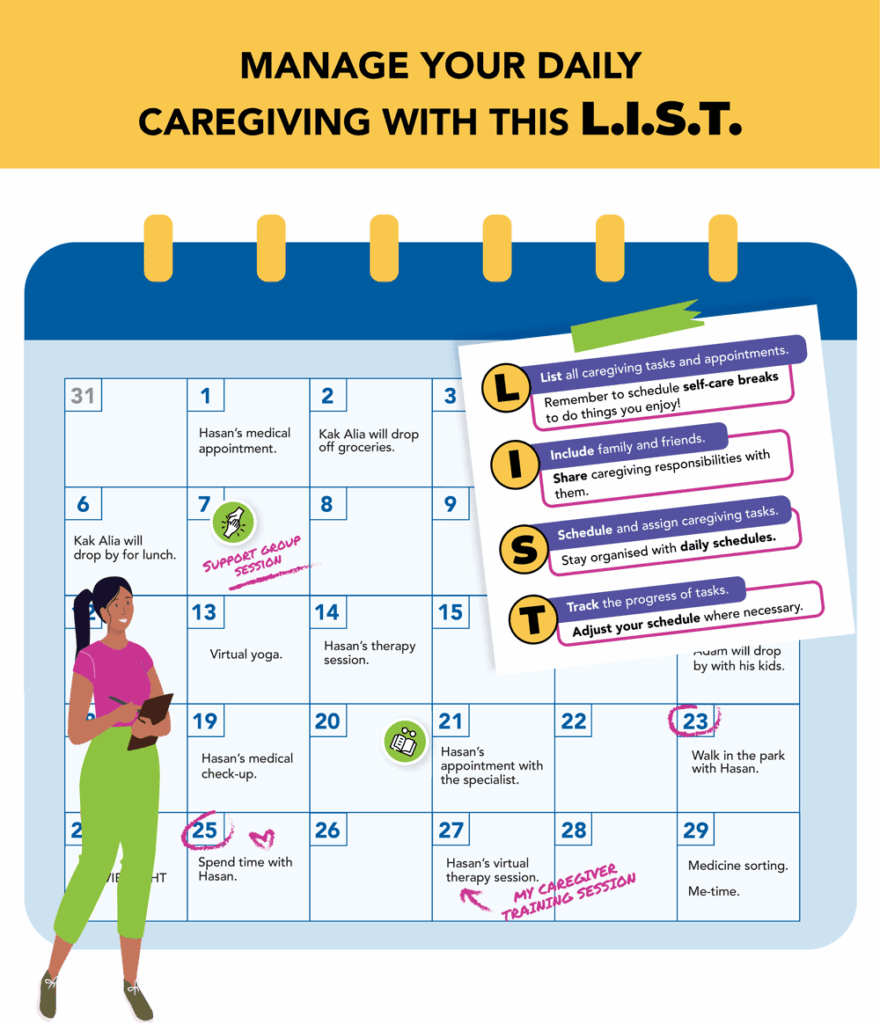
Source: AIC x SG Enable Infographics on Self-care
Keeping a calendar helps you with your day’s schedule e.g. attending doctor’s appointments, family events etc. This can help you prepare for appointments, and avoid double booking. It will help you know in advance which days you might need extra support.
My caregiving routine template
You can use this template to schedule the tasks you have listed. By placing this schedule in a commonly frequented place like the refrigerator, or corridor, your family members or other paid caregivers or healthcare professionals who comes to your house knows what needs to be done each day.
Engaging your loved one
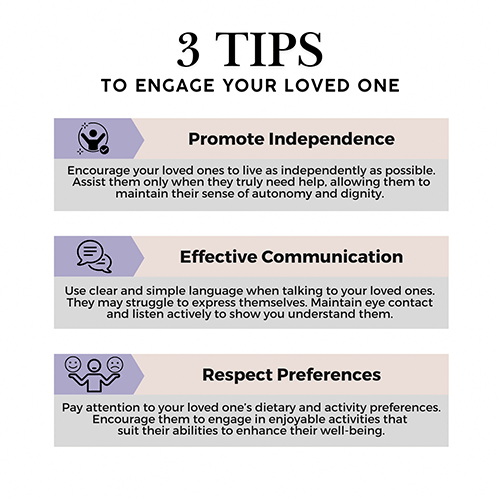
Activities for your loved one
Engaging your loved one in activities is a wonderful way to connect and support their well-being. Follow the three tips above, be creative and explore various interests together. You can focus on what your loved one enjoys and can do comfortably. Activities should also be adaptable to their abilities to move and think, so they can participate comfortably.
Here are some activities you can do with your loved ones:
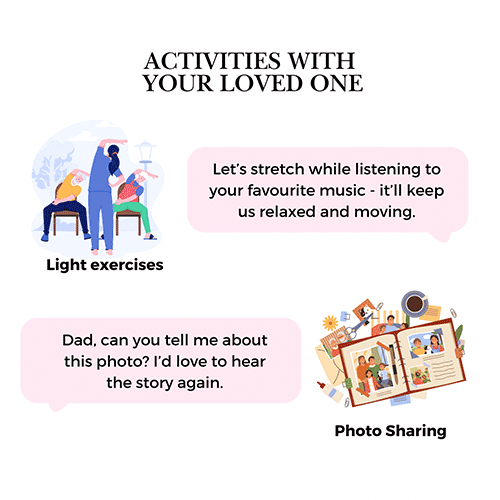
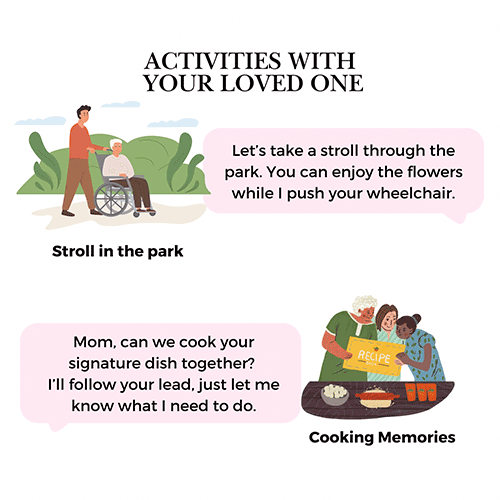
If your loved one is a stroke survivor
These simple exercise videos offer a way to support your loved one’s recovery while spending quality time together. Every small movement is a shared step towards strength, connection, and care.
Exercises for Stroke Patients – Lower Limb Exercises
Exercises for Stroke Patients – Upper Limb Exercises
Exercises for Stroke Patients – Theraband Exercises
Exercises for Stroke Patients – Fun Exercises With Household Items
If your loved one has dementia
You can find additional resources on how to support your loved one to live well with dementia here.
If your loved one has disability
Individuals with disabilities may face mobility challenges, but more buildings are incorporating universal design elements to enhance accessibility. Browse here for some inclusive venues where you can enjoy activities like playing, shopping, watching movies, and having fun!
Additional activity resources for seniors
If your loved ones are seniors who are well and living in their own home, or those requiring assistance at Community Care facilities (e.g. Nursing Homes, Centres), click here to find an array of resources under the AIC Wellness Programme.
The AIC Wellness Programme engages seniors through provision of meaningful activities to enhance their wellbeing and quality of life. For more information, email healthyageing@aic.sg.
Emotional support
Activities that you engage with your loved ones can be used to build connections through understanding and reassurance. Provide your loved ones with emotional support by:
- encouraging positivity throughout the activity
- practising patience if they take a longer time to complete a task
- showing empathy when we see that they may have made mistakes by not pointing them out nor judging them
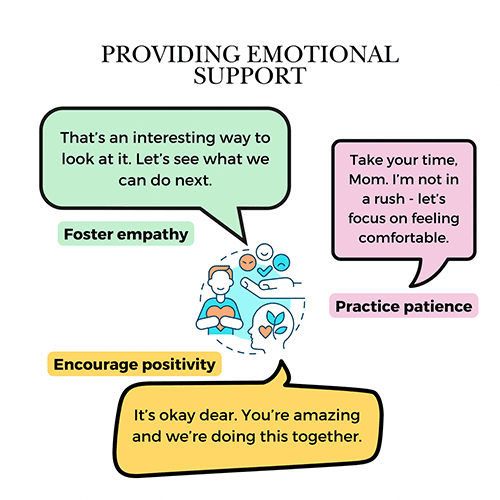
Planning your loved one’s meals
Different illnesses may cause one’s diet to be changed to prevent worsening symptoms or to reduce further health risks to your loved ones as advised by your loved one’s doctor or dietitian. Read this Caregiver’s Guide to better understand what you need to consider when preparing meals at home.
If your loved one has special dietary restrictions to prevent choking during meals, you can refer to these videos produced by Khoo Teck Phuat Hospital on:
For inspirations on dishes to prepare, explore this recipe book compiled and curated by caregivers like you.
Meal planning chart
Use this meal planning chart to help you plan so you can make sure that a good diet is maintained for your loved one. Knowing what meal to prepare for the week allows you to make less trips to the grocery store and reduce time needed to cook. If you are engaging meal delivery services, you can also write down who and when such help is needed.
Medication management
Staying informed about the medications your loved ones are taking and ensuring they are taken correctly, is important for supporting their treatment plans. This comprehensive guide by Ministry of Health provides valuable insights and tips on effective medication management.
